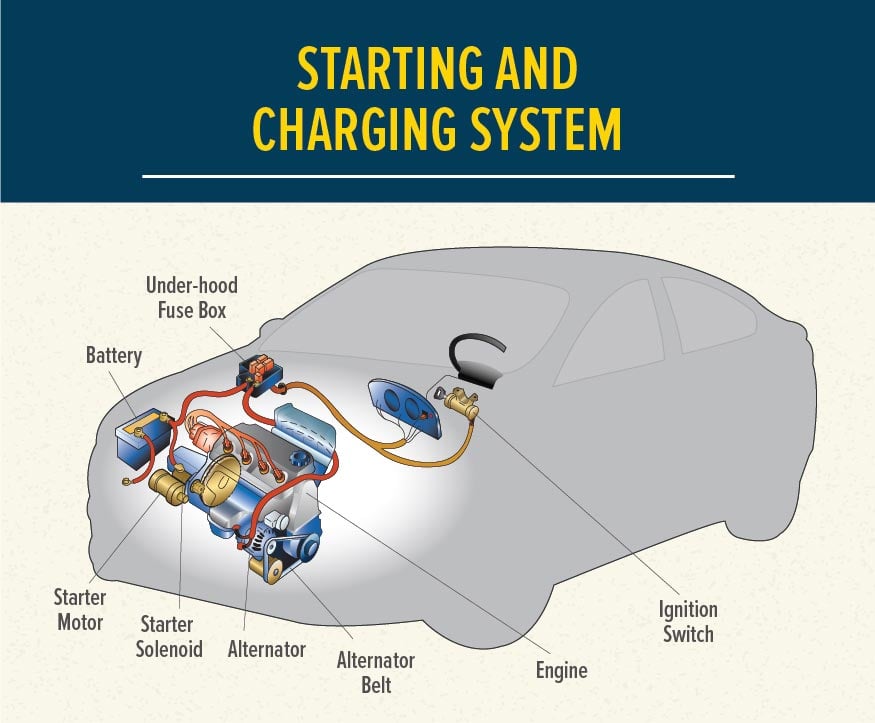Will Running a Car Engine Charge the Battery?
Yes, running a car engine will charge the battery. The alternator, which is driven by the engine, generates electricity that is used to power the car’s electrical system and to charge the battery. When the engine is running, the alternator supplies more electricity than the car needs, so the excess electricity is used to charge the battery.
How does the alternator work?
The alternator is a type of electrical generator that converts mechanical energy into electrical energy. In a car, the alternator is driven by a belt that is connected to the engine’s crankshaft. As the engine turns, the crankshaft rotates the alternator, which causes the alternator to generate electricity.
The alternator consists of two main components: a rotor and a stator. The rotor is the rotating part of the alternator, and the stator is the stationary part. The rotor is made of a series of magnets, and the stator is made of a series of copper coils. As the rotor rotates, the magnets create a magnetic field that induces an electrical current in the copper coils.
How does the battery work?
A car battery is a type of storage battery that stores electrical energy. Batteries are made up of two or more electrochemical cells. Each cell consists of two electrodes (a positive electrode and a negative electrode) that are immersed in an electrolyte solution. When the battery is connected to a circuit, the chemical reactions that take place in the cells generate an electrical current.
The battery in a car provides power to the car’s electrical system when the engine is not running. The battery also provides power to the starter motor, which cranks the engine. When the engine is running, the alternator charges the battery, so that the battery is always ready to provide power when needed.
How long does it take to charge a car battery?
The amount of time it takes to charge a car battery depends on the size of the battery and the amperage of the alternator. A typical car battery will take about an hour to charge at a rate of 10 amps. However, if the battery is completely discharged, it may take several hours to charge.
Can you overcharge a car battery?
Yes, it is possible to overcharge a car battery. Overcharging can damage the battery and shorten its lifespan. Most alternators have a built-in voltage regulator that prevents the battery from being overcharged. However, if the voltage regulator fails, the battery may be overcharged.
Symptoms of a bad alternator
There are several symptoms that can indicate a bad alternator. These symptoms include:
- Dim headlights
- Flickering lights
- Slow starting
- Dead battery
- Battery warning light on
Symptoms of a bad car battery
There are also several symptoms that can indicate a bad car battery. These symptoms include:
- Slow starting
- Dead battery
- Dim headlights
- Flickering lights
- Battery warning light on
Conclusion
Running a car engine will charge the battery. The alternator, which is driven by the engine, generates electricity that is used to power the car’s electrical system and to charge the battery. If you are experiencing any of the symptoms of a bad alternator or a bad car battery, it is important to have your car checked by a qualified mechanic.





